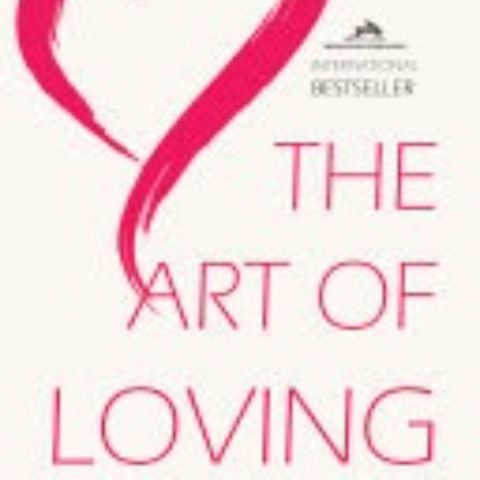The Art of Loving

Scarica e ascolta ovunque
Scarica i tuoi episodi preferiti e goditi l'ascolto, ovunque tu sia! Iscriviti o accedi ora per ascoltare offline.
Descrizione
Chapter 1:Summary of The Art of Loving "The Art of Loving" by Erich Fromm, first published in 1956, explores the nature of love and its importance in human life. Fromm,...
mostra di più"The Art of Loving" by Erich Fromm, first published in 1956, explores the nature of love and its importance in human life. Fromm, a social psychologist and philosopher, argues that love is not merely a feeling but an art that requires knowledge, effort, and commitment to develop. Key Concepts:
- Love as an Art: Fromm posits that love should be approached as an art form, akin to music or painting, requiring discipline, concentration, and practice. It is not something that happens spontaneously but is cultivated through understanding and dedication.
- Different Types of Love: Fromm outlines several forms of love, including:- Brotherly Love: A deep sense of mutual respect and care for others.- Motherly Love: Unconditional love that provides nurturing and support.- Erotic Love: Romantic love that is often passionate but can be fleeting.- Self-Love: A healthy form of self-regard that is essential for loving others.- God's Love: A spiritual love that transcends the individual and connects people to a larger existence.
- The Illusion of Falling in Love: Fromm critiques the notion of "falling in love," suggesting that it often leads to idealization of the partner and can mask the deeper, more enduring aspects of love. True love is not about possession but mutual growth.
- . The Importance of Personal Growth: Fromm emphasizes that love requires personal development and maturity. This involves self-awareness, discipline, and the ability to communicate openly with one's partner
- Societal Influences on Love: Fromm discusses how contemporary society affects the ability to love, highlighting issues such as consumerism, isolation, and a focus on self-interest, which can hinder genuine connections.
- Love and Freedom: Fromm argues that real love is a balance between freedom and responsibility. Authentic love allows individuals to express themselves fully while also caring for their partners' needs. Conclusion:In "The Art of Loving," Erich Fromm presents love as a transformative, complex practice that is essential for individual fulfillment and social cohesion. He calls for a deeper understanding of love that goes beyond emotional attachment, emphasizing the need for conscious effort, empathy, and commitment. The book encourages readers to view love as an active choice and an ongoing process rather than a passive experience.
Chapter 2:The Core Themes of The Art of Loving
"The Art of Loving" by Erich Fromm explores several core themes related to love, relationships, and human connection. One of the central ideas is that love is an active, conscious practice rather than a mere feeling or emotion. Fromm emphasizes that true love requires effort, knowledge, and responsibility, challenging the notion that love is solely a passionate or romantic experience.Another important theme is the distinction between different types of love: erotic love, brotherly love, self-love, and the love of God. Fromm argues that each type of love plays a vital role in human development and fulfillment. He highlights the importance of self-love as a foundation for loving others, suggesting that a healthy sense of self is essential for nurturing meaningful relationships.Fromm also delves into the societal conditions that affect our capacity to love, emphasizing the impact of consumerism and individualism on human connection. He critiques contemporary society's tendency to commodify relationships and suggests that genuine love flourishes in a context of mutual respect, understanding, and commitment.Additionally, Fromm addresses the psychological aspects of love, discussing the interplay between love and freedom. He posits that true love enhances individuality and freedom rather than constraining it, advocating for a mature love that balances intimacy with autonomy.Ultimately, Fromm's work serves as a philosophical guide that encourages readers to examine their own understanding and practice of love, advocating for a more profound, intentional approach to forming connections with others.
Chapter 3: 10 Quotes From The Art of Loving
Certainly! Here are ten notable quotes from "The Art of Loving" by Erich Fromm:
- "Love is the only human power that can transform a man into something he is not."
- . "To love is not to be possessed by someone, but to possess someone else as an equal."
- "Love is an activity, not a passive effect; it is a force that brings people together."
- "In love, there is no possession, only mutual commitment and respect."
- "The main condition for the development of love is the overcoming of narcissism."
- . "Love is an act of faith, and whoever is of little faith is also of little love."
- "The art of loving has to be learned and practiced; it is not simply a phenomenon."
- "The most important thing in love is not the act of loving but the capacity to be loved."
- "Love is not just a feeling; it is a commitment to the well-being of another."
- "In a world where people experience alienation, the ability to love is the greatest human achievement."These quotes encapsulate Fromm's views on love as an active, cultivated relationship rather than merely an emotion or possession.
Book https://www.bookey.app/book/the-art-of-loving
Author https://www.bookey.app/quote-author/erich-fromm
Quotes https://www.bookey.app/book/the-art-of-loving/quote
The Road Less Traveled https://www.bookey.app/book/the-road-less-traveled
Youtube https://www.youtube.com/watch?v=alOiNes-LCk
Amazon https://www.amazon.com/Art-Loving-Erich-Fromm/dp/0061129739
Goodreads https://www.goodreads.com/book/show/14142.The_Art_of_Loving
Informazioni
| Autore | Bookey |
| Organizzazione | pancheng li |
| Sito | - |
| Tag |
Copyright 2024 - Spreaker Inc. an iHeartMedia Company
